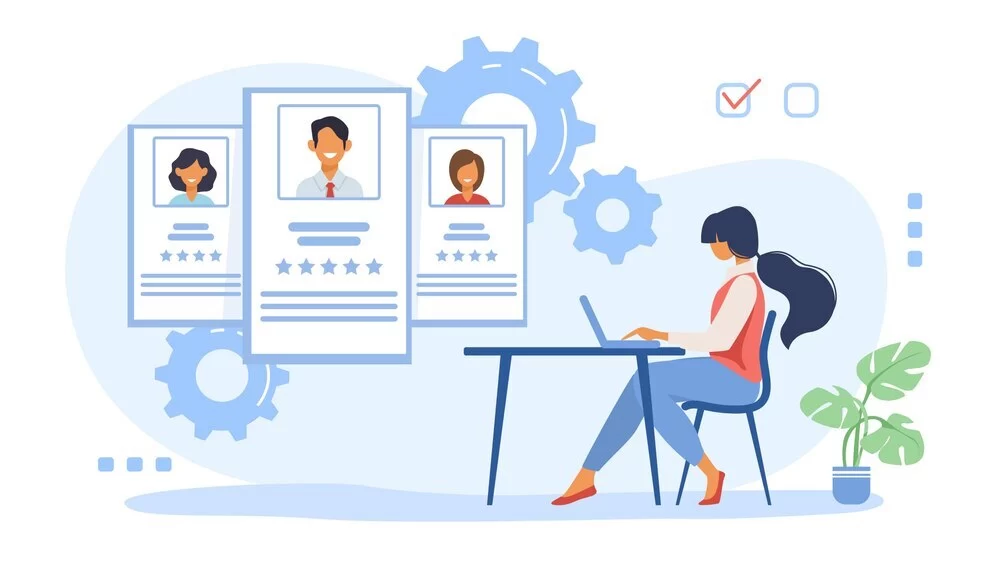The Layoffs Dilemma
Layoffs and skills shortages are two challenges that have been affecting the job market for some time now. While the reasons for these challenges are complex and interrelated, there is growing concern that the increasing use of artificial intelligence (AI) may be exacerbating the situation. In this article, we will explore the underlying causes of layoffs and skills shortages, and consider the role that AI is playing in these trends.
Layoffs have been a reality of the job market for many years, with companies frequently restructuring their workforce in response to changing economic conditions.

The 2008 financial crisis was a particularly difficult time for many workers, as businesses struggled to stay afloat in the face of declining demand. In the aftermath of the crisis, many companies downsized their operations, shedding jobs and reducing their workforce.
Solution Scope
In recent years, layoffs have become a more common occurrence, as companies face increasing competition and pressure to improve their bottom line. This has been exacerbated by the rapid pace of technological change, as new technologies disrupt traditional industries and create new markets. In many cases, these technological advancements have enabled companies to automate tasks that were previously performed by human workers, resulting in job losses.
Skills shortages, on the other hand, are a result of the changing demands of the job market. As new technologies emerge, the skills and expertise required to perform certain jobs change, and workers may find themselves struggling to keep up. In some cases, workers may need to be retrained in order to remain employable, but in many cases, there simply aren't enough people with the required skills to meet the demands of the market.
Better Decisions
Armed with advanced data analytics, decision-makers have better information to hone their corporate human resources strategies that improve employee performance. The role of AI in these trends is a subject of much debate. On one hand, AI has the potential to automate many tasks, freeing up human workers to focus on more complex and creative work. This has the potential to boost productivity and drive economic growth. On the other hand, AI also has the potential to displace workers, particularly in industries that are already struggling to remain competitive.
One of the key ways that AI is affecting the job market is through the automation of routine tasks. Many jobs that were once performed by human workers are now being performed by machines, with AI playing a key role in this process. For example, machine learning algorithms can be trained to perform tasks such as data entry, customer service, and even medical diagnoses.
While this has the potential to improve efficiency and reduce costs for businesses, it also has the potential to displace workers and contribute to layoffs.

Another way that AI is affecting the job market is through the creation of new jobs. As AI and other technologies continue to evolve, new industries and job categories are emerging, requiring workers with new and unique skills. For example, the field of data science, which combines skills in statistics, computer science, and domain expertise, has emerged as a rapidly growing field in recent years. Workers who have the skills in this field are in high demand, but there is a shortage of people with these skills.
Keeping Pace With Change
This highlights the importance of keeping up with the changing demands of the job market and ensuring that workers have the skills they need to remain employable. This requires investment in education and training programs that help workers develop the skills they need to succeed in the new economy.
The role of AI in exacerbating the skills shortage is a complex issue. On one hand, AI has the potential to improve education and training by providing students with access to high-quality learning resources and personalized learning experiences. On the other hand, the rapid pace of technological change means that skills are becoming obsolete more quickly, making it difficult for workers to keep up.
The increasing use of AI in the workplace is also affecting the nature of work itself. As machines take over more routine tasks, workers are being
How WorkforceAI Streamlines Layoffs
Massive layoffs is like invasive surgery. It's easy to make such a decision and easy to implement. At the same time it throws the baby out with the bathtub.
In the massive layoff process, the business gets rid of the entire 'unwanted' sections or divisions with haste, regardless of the skills and loyalty of individuals who had applied themselves diligently to their work and carried the company banner with pride.
Many of them feel undervalued and leave with disappointment, anger and disillusionment. Most will not return even if they are invited back.
On the other hand, the business soon goes on a recruitment drive, looking for people with new skills. Some of the employees fired, had skills related to what the business is now seeking but the business did not have a means to quickly identify those with the related skills they will now need.
What's missing is the means to sift out the useful ones before doing a massive layoff. Had they been able to identify those with the related skills they will need, up-skilling would have been faster and less expensive than recruitment.
WorkforceAI provides a better way.
It easily allows senior decision-makers to identify people in the section or division of the company who have the skills that are being sought in the new recruitment drive. Within a short time, employees with the needed skills and competencies could have been identified, retained and up-skilled.
In many cases of massive layoffs, WorkforceAI could save businesses lost time, unnecessary effort and millions of dollars!
Get ready for the next round of layoffs. Next time, don't throw the babies out!
